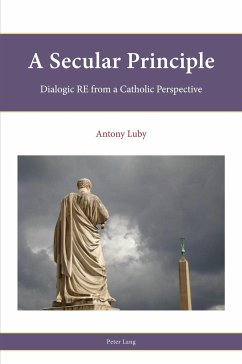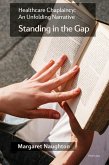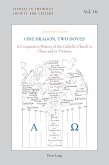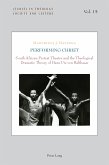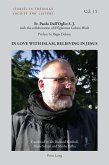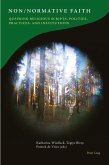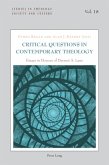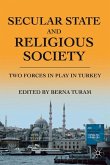The Catholic Church has recently issued a call for «educating to fraternal humanism» - most notably through the encyclical letter of Pope Francis, Fratelli Tutti. Fraternal humanism envisions a pluralist society in which all voices are to be heard and this contrasts with previously held positions of outright rejection of pluralist societies (Augustinian Thomism) or Christianisation of such societies (Whig Thomism). This book proposes an alternative, Dominican Thomist vision of a procedurally secular society that comprises three realms, namely sacred, secular and profane. Such a Dominican Thomist enterprise is founded upon human reasoning whereby Catholic and liberal thinkers collaborate to build this society of three realms in which a fortified secular realm operates as a porous buffer against the sacred and profane realms. In such a society, the public sphere is pluralist and open to all voices. Derived from experience and classroom research into dialogic RE interventions; asocially productive pedagogy is advocated as a starting point for the development of a procedurally secular society. In particular, it identifies a common ground pathway that supports both critical RE from liberal education and critical faith pedagogy from the Catholic tradition.
«Christendom has gone. Christianity has not. Christianity remains alive and acutely conscious of having a message to impart and a contribution to make to the common good of our shared society. Perplexity arises when we seek to articulate a Christian perspective on the «secular» world and suitable strategies for engagement. In this thoughtful and thorough book Dr Antony Luby offers both theoretical and practical approaches that would enable the culture of dialogue for which Pope Francis calls. I hope it receives the consideration it merits.» (Hugh Gilbert, Bishop of Aberdeen President, The Bishops' Conference of Scotland)
«This is an essential book for Christ's Ambassadors, (2 Corinthians 5, 19-20) «not holding men's faults against them...So we are ambassadors for Christ,..and the appeal we make in Christ's name is: be reconciled to God». An ambassador must engage with interlocutors, sensitively interpreting their position and offering common ground for dialogue.» (The Most Reverend Mario Conti, Archbishop Emeritus of Glasgow and former Member of the Pontifical Council for the Promotion of Church Unity)
«This is an essential book for Christ's Ambassadors, (2 Corinthians 5, 19-20) «not holding men's faults against them...So we are ambassadors for Christ,..and the appeal we make in Christ's name is: be reconciled to God». An ambassador must engage with interlocutors, sensitively interpreting their position and offering common ground for dialogue.» (The Most Reverend Mario Conti, Archbishop Emeritus of Glasgow and former Member of the Pontifical Council for the Promotion of Church Unity)

